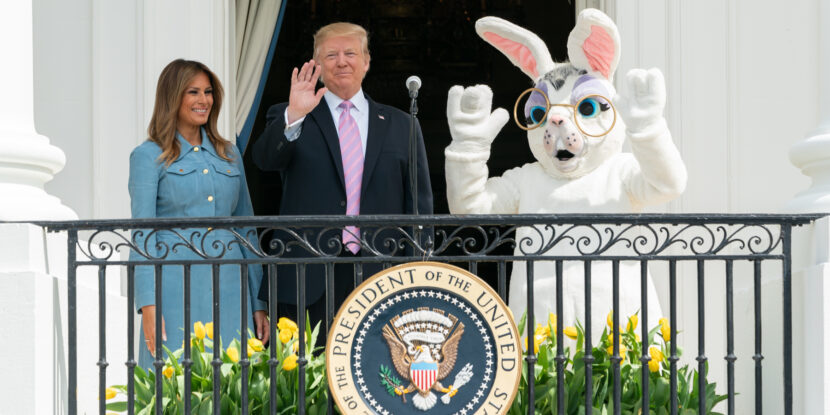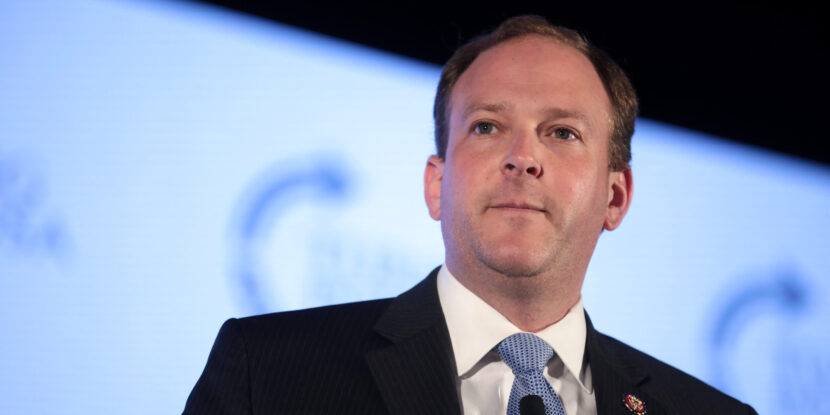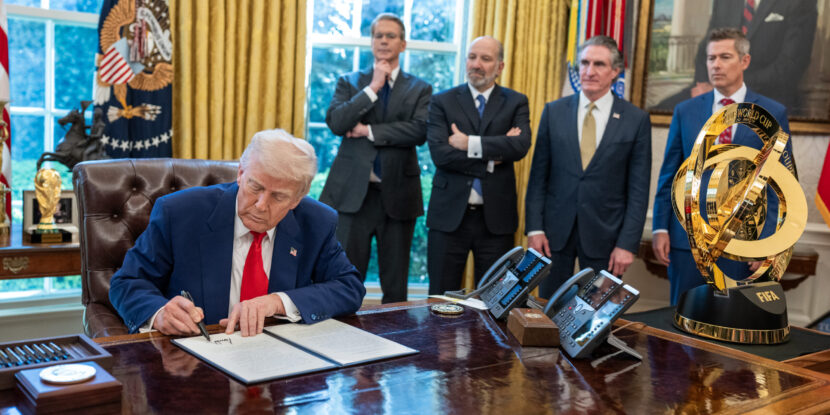
PULSE POINTS:
❓What Happened: Legislation is being proposed to make Easter Monday a federal holiday in the United States.
👥 Who’s Involved: The proposal is spearheaded by Sen. Eric Schmitt of Missouri and Rep. Riley Moore of West Virginia.
Your free, daily feed from The National Pulse.
📍 Where & When: The bill, introduced in the Senate, is currently referred to the Senate Judiciary Committee. Schmitt made the announcement on X (formerly Twitter), citing a 2023 poll.
💬 Key Quote: Schmitt described the proposal as “a federal recognition of a tradition central to Western civilization.”
⚠️ Impact: If passed, the change might increase economic activity by $2 billion and provide families with a three-day weekend.
IN FULL:
An initiative to make Easter Monday a federal holiday is gathering attention in Washington, spearheaded by Senator Eric Schmitt (R-MO) and Representative Riley Moore (R-WV). The proposed legislation could align the U.S. with countries like Canada and Australia, where Easter Monday is already recognized as a public holiday. Citing a 2023 survey by the National Retail Federation and Prosper Insights & Analytics, Schmitt emphasized that 81 percent of Americans celebrate Easter, suggesting the proposal is not radical but a continuation of widely observed traditions in many Western countries.
In a social media post, Schmitt highlighted Easter Monday’s potential benefits as a public holiday, reasoning that the holiday marks the only two-month gap in the federal holiday calendar. Acknowledging Easter’s variability—it falls between March 22 and April 25, according to certain ecclesiastical rules—Schmitt pointed out how designating the following Monday as a federal holiday could fill this gap and offer a needed three-day weekend for American families. He further argued that this decision would be “Pro-worker, Pro-family, Pro-faith.”
81% of Americans celebrate Easter.
But our current holiday schedule makes it way too difficult for families to celebrate together.
Easter falls on the longest unbroken work stretch of the calendar. (March and April are the only back-to-back months without a federal holiday). pic.twitter.com/g0057itmWm
— Eric Schmitt (@Eric_Schmitt) April 14, 2025
From an economic standpoint, Schmitt noted Easter weekend already contributes approximately $15 billion to the U.S. economy. A three-day weekend could potentially boost economic revenues by 10-15 percent, amounting to an additional $2 billion while strengthening family bonds.
Currently, there are 11 federal public holidays in the United States. Schmitt pointed out that Christmas is the only religious holiday that is federally recognized. The most recent addition to the federal holiday list was Juneteenth, which acknowledges the abolition of slavery and was signed into law in 2021.

PULSE POINTS:
What Happened: The Trump-led EPA has launched an investigation into Make Sunsets, a solar geoengineering startup, for releasing sulfur dioxide into the atmosphere, prompting concerns about air quality violations under the Clean Air Act.
Who’s Involved: EPA Administrator Lee Zeldin, Make Sunsets founders Luke Iseman and Andrew Song, and the EPA’s Office of Air and Radiation.
Your free, daily feed from The National Pulse.
Where & When: EPA Headquarters, Washington, D.C., April 14, 2025, with a public statement from Zeldin on April 15, 2025.
Key Quote: EPA Administrator Lee Zeldin stated on X, “Make Sunsets is a startup that is geoengineering by injecting sulfur dioxide into the sky and then selling ‘cooling credits.’ This company is polluting the air we breathe.”
Impact: The EPA’s actions could lead to monetary penalties or criminal charges for Make Sunsets, potentially setting a precedent for regulating geoengineering activities in the U.S., amidst broader Trump administration efforts to deregulate climate policies.
IN FULL:
The U.S. Environmental Protection Agency (EPA), under the leadership of President Donald J. Trump’s Administrator Lee Zeldin, has initiated what it says will be a swift investigation into Make Sunsets, a startup accused of polluting the atmosphere through geoengineering. On April 14, 2025, the EPA’s Office of Air and Radiation issued a letter to Make Sunsets founders Luke Iseman and Andrew Song, demanding information within 30 days to determine if the company’s activities violate the Clean Air Act.
Make Sunsets has been releasing sulfur dioxide into the stratosphere via weather balloons, aiming to reflect sunlight and cool the planet—selling these balloon flights online in the form of so-called “cooling credits.” The Trump administration is acting against the startup due to its potential to degrade air quality, coupled with a lack of regulatory oversight.
Zeldin took to X (formerly Twitter) on April 15, 2025, to explain the situation, stating, “Make Sunsets is a startup that is geoengineering by injecting sulfur dioxide into the sky and then selling ‘cooling credits.’ This company is polluting the air we breathe. I’ve instructed my team that we need to quickly get to the bottom of this.”
The EPA’s letter, signed by Abigale Tardif, Principal Deputy Assistant Administrator of the Office of Air and Radiation, cites Section 114(a) of the Clean Air Act, which empowers the agency to demand information from entities suspected of impacting air quality. It warns of potential enforcement actions under Section 113 of the Act, which includes fines and criminal penalties for non-compliance or providing false information.
On behalf of Make Sunsets, Iseman previously argued, “It’s morally wrong… for us not to be doing this.” However, the company has already been banned in Mexico following unauthorized sulfur dioxide releases in Baja California in 2022. Notably, this prompted the Mexican government to prohibit solar geoengineering experiments altogether in 2023.
Make Sunsets later conducted launches in Nevada, which also drew scrutiny for failing to report to the National Oceanic and Atmospheric Administration (NOAA) despite requirements under U.S. law. Critics, including environmentalists and scientists, have long warned that such geoengineering efforts lack sufficient scientific backing and international governance, posing unpredictable risks to the environment and public health.
The investigation into Make Sunsets could set a significant precedent for regulating geoengineering in the U.S., a field that remains largely ungoverned both domestically and internationally.
READ:
Make Sunsets is a startup that is geoengineering by injecting sulfur dioxide into the sky and then selling “cooling credits.” This company is polluting the air we breathe. I’ve instructed my team that we need to quickly get to the bottom of this and take immediate action. pic.twitter.com/9b6xPzMf4v
— Lee Zeldin (@epaleezeldin) April 15, 2025
show less

President Donald J. Trump signed an Executive Order aimed at slashing prescription drug costs—with insulin reduced to three cents for low-income Americans.
The details: Trump’s order takes aim at drug costs and Big Pharma from several angles:
Your free, daily feed from The National Pulse.
- Insulin: Prices drop to as low as three cents for low-income and uninsured patients.
- Epinephrine: Injectable doses fall to $15.
- Cancer drugs: Standardizing Medicare payments for prescription drugs, like cancer treatments, which can lower prices by 60 percent.
- Generics: Boosted access to biosimilars, which can be up to 80 percent cheaper.
- Middlemen: Order demands transparency from pharmacy benefit managers and pushes reforms to the entire supply chain.
- Drug importation: States can import lower-cost meds, including for sickle cell.
Back up: In 2020, Trump launched a program to give seniors access to $35 per 30-day supply of insulin. Biden let the program expire and then rolled it into the 2022 Inflation Reduction Act (IRA) and took credit for it.
Eclipsing Biden: The IRA also created the Medicare Drug Pricing Negotiation Program, which allowed Medicare to negotiate drug prices directly with pharma companies for high-cost prescription drugs.
- In its first year in effect under Biden, the program netted a 22 percent reduction in prices. Trump’s order aims to “eclipse” that number.
Big picture: Roughly 68 million Americans are enrolled in Medicare—meaning these reforms will touch roughly 20 percent of the U.S. population.
Be sure to subscribe to the Wake Up Right newsletter!
show less
President Donald J. Trump signed an Executive Order aimed at slashing prescription drug costs—with insulin reduced to three cents for low-income Americans. show more

 2 months ago
4
2 months ago
4








 English (US) ·
English (US) ·